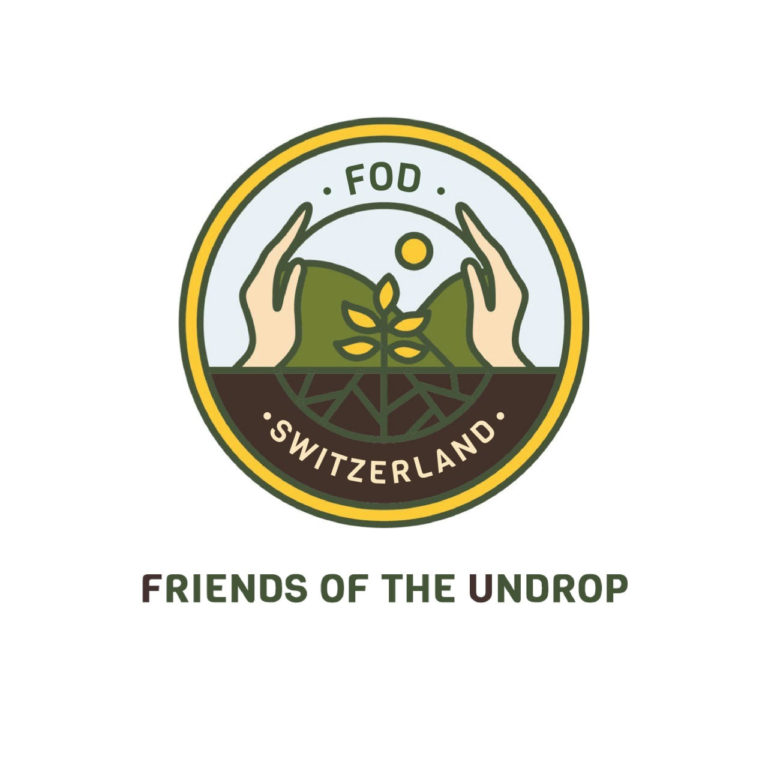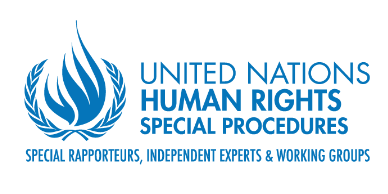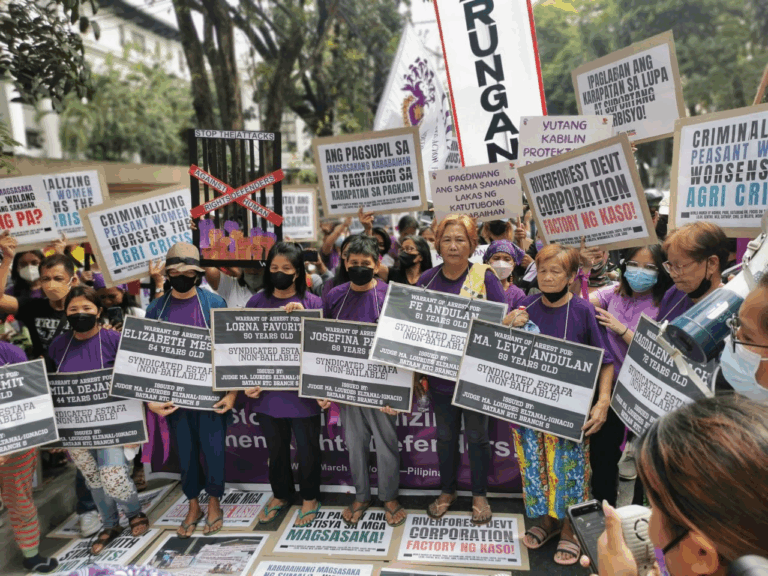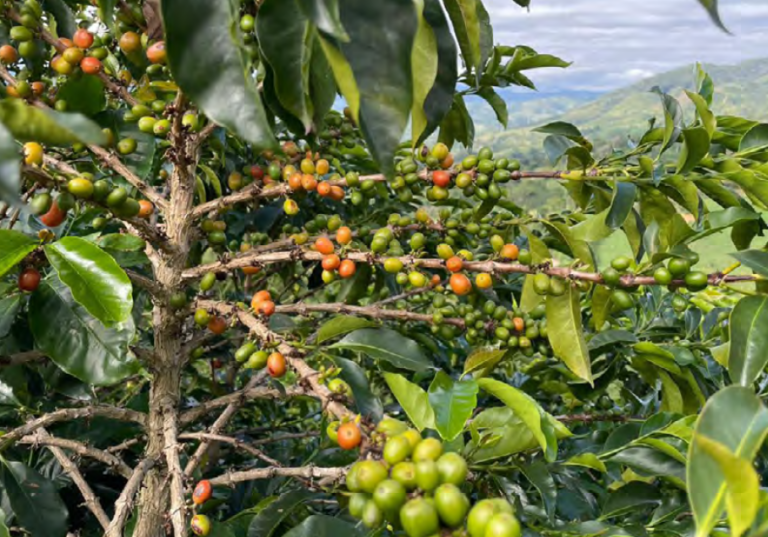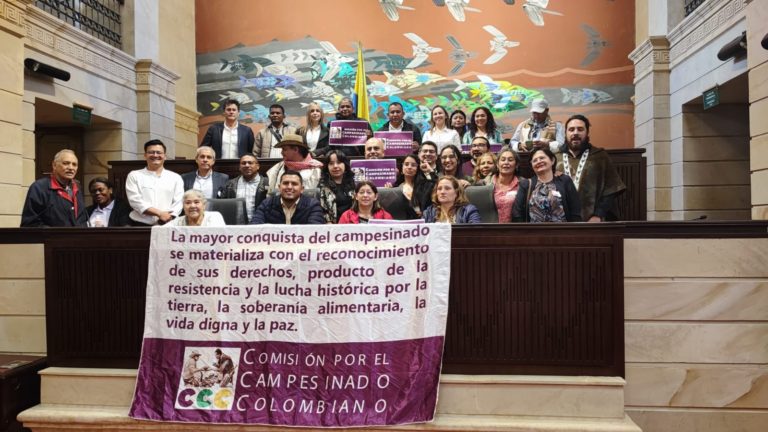Challenges facing the Brazilian Peasantry: The UNDROP as a Tool for Struggle
Contribution from La Via Campesina Brazil to the UN Working Group on the UNDROP
La Via Campesina Brazil has submitted a written contribution in response to the call from the UN Working Group on peasants’ rights, outlining the main challenges faced by the Brazilian peasantry. Drafted collectively following a training session on the UNDROP for Brazilian organisations of La Via Campesina (LVC), the text also presents a collective vision on the current state of peasants’ right to participation in Brazil.
La Via Campesina Brazil has submitted a written contribution in response to the call from the UN Working Group on the UNDROP, outlining the main challenges faced by the Brazilian peasantry. Drafted collectively following a training session on the UNDROP for Brazilian organisations of La Via Campesina (LVC), the text also presents a collective vision on the current state of peasants’ right to participation in Brazil.
During the months of January and March 2025, a training session on the United Nations Declaration on the Rights of Peasants and Other People Working in Rural Areas (UNDROP) was held for member organisations of La Via Campesina Brazil, with support from the human rights organisation Terra de Direitos and CETIM. This was the first training focused on the UNDROP for social movements and grassroots rural organisations in Brazil, serving as a practical example of the implementation of La Via Campesina International’s strategy of conducting training on the Declaration for its bases in various countries.
The aim of the training was not only to make the UNDROP known among its rights-holders, but also to facilitate and encourage a popular appropriation of this Declaration by peasants and other rural peoples in their political and legal struggles at local, national, regional, and international levels. The training also had the central objective of drafting a strategic plan for advocacy vis-à-vis various governmental, legal, and political bodies, aiming for the implementation of the Declaration with the active participation of peasants and other rural peoples whose rights are enshrined in the UNDROP.
In the framework of this first training in Brazil, participants from the various social movements that make up La Via Campesina in the country studied the history of the process leading up to UNDROP’s adoption, as well as the content of the instrument – highlighting peasants’ rights to land, biodiversity, seeds, and food sovereignty. In a second stage, they discussed concrete cases of violations of the rights enshrined in the UNDROP that have occurred in their national territory, perpetrated mainly by transnational corporations and agents of the agribusiness sector.
Leveraging the political capital of the social movements present in the training, driving the implementation of the UNDROP from a popular perspective is crucial within the scope of the arduous and long-standing work for social justice, agrarian reform, and food sovereignty in rural Brazil. In this sense, the strategic plan collectively drafted during the training provided important clarity on the path to be taken towards promoting and implementing the UNDROP in Brazil and translating its provisions into both legal frameworks and public policies.
Among the various initiatives to be carried out is engagement and advocacy with the United Nations (UN), particularly with its newly established Working Group (WG) on the UNDROP. By participating in the WG’s debates and collaborating with its work, peasant and rural organisations around the world can use this international mechanism to advance the implementation of the UNDROP in their respective countries. After all, one of the WG’s functions is precisely to recommend, support, and monitor UN member states in implementing the Declaration, so that it can serve as a direct vector in the elaboration of public policies, programmes, and laws that truly address rural inequalities.
In March 2025, the WG issued a public call for peasant and rural organisations, as well as governments and other institutions, to contribute to its next two studies which will address the following themes: i. global trends in the challenges affecting peasants; ii. peasants’ right to equal participation. Thus, La Via Campesina Brazil, through the Pastoral Land Commission (CPT), the Small Farmers’ Movement (MPA), the Movement of People Affected by Dams (MAB), the Landless Rural Workers’ Movement (MST), together with Terra de Direitos and with technical support from CETIM, submitted a document to contribute to the WG’s studies based on the challenges faced by the Brazilian peasantry. The document, available here, presents a collective perspective on the current situation of rural peoples’ challenges in Brazil, summarised as follows:
Peasants, artisanal fishers, traditional peoples, and rural workers in Brazil face structural challenges that threaten their livelihoods and fundamental rights. Land concentration and agrarian conflicts are exacerbated by the lack of agrarian reform and the privatisation of common lands, leading to violence and impunity. Moreover, access to public policies is limited by bureaucracy, lack of technical assistance, and infrastructure, while the climate crisis and large-scale projects, such as dams, displace communities and degrade the environment. Peasant cultural identity is also threatened by the advance of agribusiness, which replaces sustainable practices with monocultures and intensifies the use of agrochemicals. The criminalisation of struggles for territorial rights and the lack of access to justice further perpetuate the vulnerability of these populations, particularly indigenous peoples, quilombolas (Afro-Brazilian communities), and extractive communities, who suffer violence and social exclusion.
The right to participation of peasants and rural workers in political decision-making still faces significant barriers in Brazil. The exclusion of these groups is evident in the lack of access to information, the difficulty of effective political representation, and the absence of free, prior, and informed consultations, especially in environmental licensing processes and public policy formulation. Traditional communities, such as indigenous and quilombola peoples, frequently have their rights violated, with no adequate channels to influence decisions that impact their territories and ways of life. Furthermore, political marginalisation is worsened by the dominance of agribusiness, which concentrates power and resources, limiting the voice of family farming and small producers in national and international decision-making spaces.
Despite these challenges, there are mechanisms and policies aimed at expanding rural participation, such as agricultural development councils (CONDRAF), discussion forums, and programmes to strengthen family farming. The UN Declaration on the Rights of Peasants (UNDROP) and ILO Convention 169 provide legal bases to demand participatory consultations. However, the effectiveness of these instruments depends on social pressure, access to justice, and the State’s commitment to ensuring rural voices are heard. Social movements have played a crucial role in this struggle, promoting marches, land occupations, and political advocacy to ensure participatory rights are not merely formal but concrete and transformative.
Following the example of LVC Brazil, conducting training processes on the declaration at national and/or regional levels, developing a strategic plan by local movements for its promotion, and participating in the UN Working Group on UNDROP are essential steps to implement the declaration at national, regional and international levels. This is a fundamental path to breathe life into the declaration from the grassroots, through rights holders' appropriation of their rights and the integration of the UNDROP into their political and legal struggles for social justice and human rights for rural peoples.


